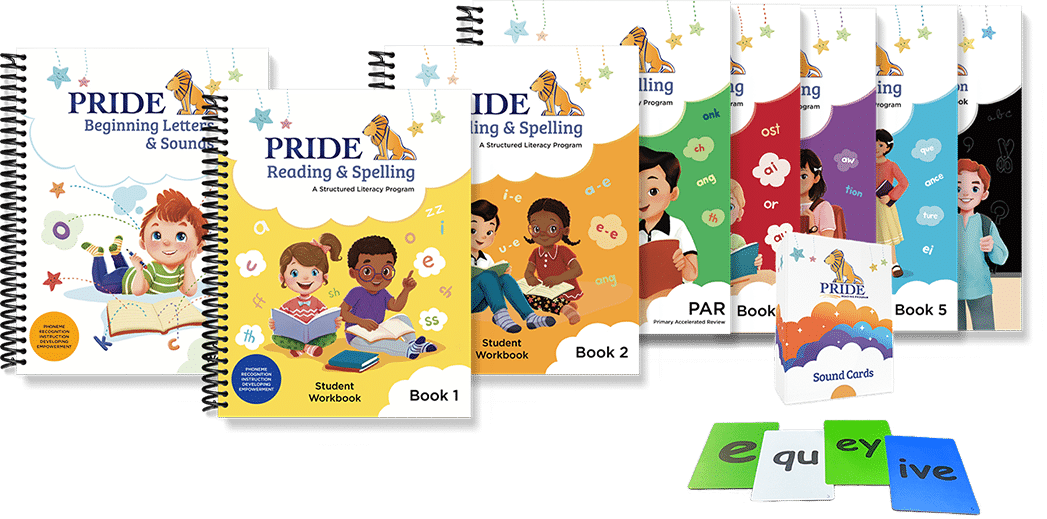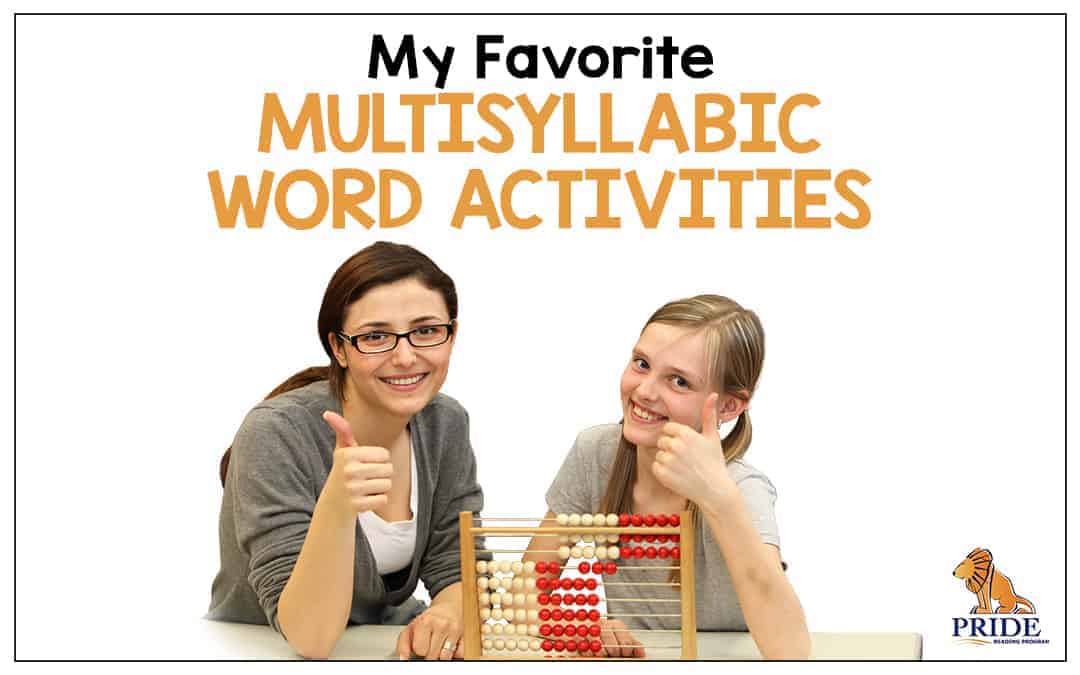Are you looking for some multisyllabic word activities that will help your student practice reading and spelling difficult words? Here are some of my favorite multisyllabic word activities that are really great practice and involve a lot of movement.
Watch our favorite teacher, Miss Renee demonstrate the multisyllabic word activities in this video:
Use Stacking Blocks
This is one of my favorite multisyllabic word activities because it is so simple and yet so much fun, especially if your student likes to build. If you have giant blocks, those work the best, but if your space is limited, you can use legos or small blocks instead.
You will start out by writing a multisyllabic word on the whiteboard. For example:
ob-ser-va-tion
Have your student stack blocks on top of each other to represent each syllable in the word. You can have your student build a new tower for each new word you write on the whiteboard, or you can have your student keep building one tower with multiple words so that the tower gets really high.
Another option is to build a tall tower first, and then have your student take off a block for each syllable in a word.
For those of you who have a lot of space, you can include some bowling with this activity. You can have your student build a really tall tower with many words and then roll a ball and knock the tower down…oooh fun!
Use Playdough
This is another one of my favorite multisyllabic word activities because it involves a little bit of a mess but your students will love it!
Have your student roll out a small flat piece of playdough and use a toothpick or any other writing tool you want to use to write the word in the playdough. Then with a plastic knife or any other tool you want to use, the student can cut the playdough through the word to represent the syllables.
You can then have your student separate the playdough pieces and then push them together.
Use an Abacus
This is also listed as one of my favorite multisyllabic word activities because it involves using an abacus. If you don’t have an abacus, you can use beads on a string instead.
Write a word on the whiteboard. Start out with just 2 syllable words and progress to 3 and 4 syllable words over time.
Ask your student to segment the syllables by moving the beads across the abacus or the beads on your string.
The Six Syllables to Teach
Just in case these above multisyllabic word activities are too difficult for your student, you might want to backtrack and make sure that you explicitly teach all six syllable types first. These include:
Closed Syllables
These syllables end in a consonant. The vowel has a short vowel sound, like in the word fan.
Open Syllables
These syllables end in a vowel. The vowel has a long sound, like in the word so.
Vowel-Consonant-e Syllable
These syllables are found at the end of a word. The final e is silent and makes the vowel in that syllable long, like in the word shake.
Vowel Team Syllable
These syllables have two vowels next to each other that make one sound together like in the word boot.
Consonant plus -le Syllable
These syllables end in -le, like in the word puddle.
R-Controlled Syllable
These syllables contain a vowel followed by an r. The r will change the way the vowel is pronounced, like in the word car.
I Have a Resource for You!
Thank you for reading my post today. You might also enjoy reading my previous posts on this topic:
Multisyllabic Words – How to Teach Them
Practice Syllable Division with this FUN Activity
Please don’t leave without checking out the PRIDE Reading Program. The PRIDE Reading Program is an Orton-Gillingham curriculum that is used by teachers, tutors, and homeschooling parents worldwide with great success.


Karina Richland, M.A., is the author of the PRIDE Reading Program, a multisensory Orton-Gillingham reading, writing, and comprehension curriculum that is available worldwide for parents, tutors, teachers, and homeschoolers of struggling readers. Karina has an extensive background in working with students of all ages and various learning modalities. She has spent many years researching learning differences and differentiated teaching practices. You can reach her by email at info@pridereadingprogram.com or visit the website at www.pridereadingprogram.com


Thank you for the creative ideas – the more the better!
I also just bought some of those Pop-its to hopefully use for multisyllabic practice.
Those are such a cool new resource! They work great for teaching sounds, too 🙂
Excellent activities I will use with my students
When you do, let us know how it works. We love getting feedback from educators 🙂
I like the “connect the dots” method. For example, I would write “observation”. Then I would put a dot between each syllable like this: ob.ser.va.tion Then the student will underline each syllable as they say it, connecting the dots!
These are GREAT always looking for fresh ideas!
Love this program!
I’m loving your highly engaging activities!
Thank you for sharing!